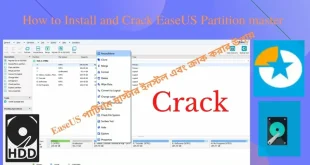Mostly, and more so in today’s competitive economic environment, home investors seek every tool that will maximize their return and hence create more flexibility when it comes to their finances. One of such influential tools is cash-out financing. Mastering how this works coupled with the pros and cons of cash-out refinance and the probable pitfalls will be very instrumental in aiding any homeowner in making a decision against the existing financial goals.
Cash-Out Refinance
Cash-out refinancing is a financial plan through which an individual can refinance his current mortgage into a new mortgage, usually for a higher amount. The difference between the old and the new mortgage balance will then be cashed out and used for whatever other form of liquidity the owner of the home needs. Compared to a conventional mortgage refinance where the important thing is securing a better interest rate, in cash-out refinancing, people want to draw from the equity of their home.
For example, if a person’s house is still valued at $400,000 and he still has $200,000 due, then he holds $200,000 in equity. He could do a cash-out refinance for $300,000, digging $200,000 into the original mortgage and receiving $100,000 in cash.
How a Cash-Out Refinance Works
On the face of it, cash-out refinancing consists of the following:
Home Equity Valuation
A homeowner would need to project what his house was worth and how much equity had been built up before he did cash-out refinancing. In other words, equity is the residual value of the house’s current value minus the outstanding mortgage balance. As a general rule, lenders let homeowners borrow up to 80% of the value, although it might sometimes be a variation on issues such as credit score and loan terms.
Application
A new mortgage application is filled by the customer from an approved list of lenders. At this stage, the borrower is required to submit his own personal financial documents, which include statements of income, credit history, and property value. All these will come in handy when the lender makes a choice on one’s qualification for the loan and what maximum amount should be doled out.
Appraisal
This is the determination of a house’s actual market value carried out by a professional. This comes in handy with the fact that the amount that can be withdrawn is dependent on the figure from it. A proper appraisal guarantees equity and real judgment by any homeowner of the potential borrowing they could have.
Closing and Approval
After the approving of application, the homeowner may close. In closing, the new mortgage is opened and the cash-out portion of the mortgage is paid out to the home to access it at will. Closing includes signing all of the necessary documents and payment of applying fees and closing costs.

Benefits of a Cash-Out Refinance
Some benefits, therefore, which make cash-out refinance very attractive are those which give financial freedom to the homeowner: the first one being access to liquid funds to help in high-cost expense aspects like renovation, schooling, or even medical bills, or consolidating the debts. This helps create large peace of mind or a sense of financial security.
Lower Interest Rates
Lower compared to when the borrower applied for their original loan, this cash-out refinance will help the borrower in getting a lower interest rate. This might save money in the long term, even after allowing for the higher loan amount. It cuts down on the monthly payment and enhances cash flow at low interest rates.
Debt Consolidation
Looking for cash-out refi to extinguish high-interest debt, like credit card balances or personal loans. This debt will be consolidated into one mortgage at a lower interest rate and eliminate the financial obligations of the debtor—steps very instrumental in improving his financial stability and helping him come out of debt quickly.
Tax Benefits
Per Se, at times, the interest on mortgage is deductible for the purpose of tax also, and this includes the interest portion in cash-out refinance. That can help an individual to gain further financial benefits, but that has to be checked and understood with the proper tax professional according to the situation. Taking a tax deduction reduces general taxes and provides more disposable income.
So many advantages associate with a cash-out refinance, but in line with that are considerations to go with the process:
Considerations and Risks of Cash-Out Refinance
Higher Debt Load
Raising the mortgage only raises the total burden of debt. This turns out to be especially dangerous if the refinancing money is frivolously spent or the financial situation of the homeowner takes a sudden turn for the worse. More debt can result in serious financial stress and the struggle to continue to meet monthly payments.
Higher Monthly Repayments
Considering that you would have ideally borrowed less money, thinking of withdrawing a much higher amount results in higher mortgage payments every month. Therefore, homeowners should be very aware of their budget and that an increase in commitment will be supported in comfort. Put differently, accounting will be done for any potential future changes in income and expenses that will bear on the ability to continue making such payments, without an ease of strain.
Risk of Foreclosure
With cash-out refinancing, one puts the home at risk. Home falls as collateral for a new mortgage. Falling behind on repayments may lead to foreclosure, hence losing the potential of home property. One of the most serious and long-term effects on both credit and financial stability is foreclosure.
Closing Costs and Fees
Cash-out refinances are not free. Just like any other type of mortgage, they entail closing costs and fees that can amount to thousands of dollars. This totally negates any financial value that there may be in the refinancing and must be considered when determining whether a cash-out refinance is cost-effective.

Does Refinancing to Unlock Cash Make Sense for You?
Now would be the time to determine if a cash-out refinance is the way to go. The following are some of the factors that might help put across facts in the process of assessing one’s financial status and goals.
Use of Funds
Consider for what purpose the cash will be put to. If used in something productive, like home improvements that really increase the value of the property, then cash-out refinance will provide excellent value. Those funds, however, should not be used for frills or luxuries.
Long-term Financial Goals
Evaluate the degree to which the cash-out refinance can be used to push the long-run financial goals. For instance, if the goal was to pay high-interest debt or provide education funds, then any value derived from the action will justify the cost. In other scenarios, however, the justifications of other options may be more subjective, as in the case where the objective is to fund current consumption.
Rate Environment
Be watchful of the particular period, especially if the current active rates are significantly lower than the original mortgage rates, as this will provide an opportunity to capitalize on refinancing to reduce the total cost of interest. Lower rates mean greater savings on money and improved financial flexibility.
General Financial Stability
Generally, a cash-out refinance has to be considered in light of the overall financial stability of the homeowner and how well they can take on the added size of debt in the new mortgage along with the related increase in monthly payments. A cash-out refinance would be feasible only if one’s income were stable, and at least one’s credit profile would have to be on the positive end. These are obviously things that one should be aware of to take a clear look at one’s financial health and the ability to meet new financial incumbencies.
Cash-out refinancing may actually be one of the most powerful tools available to any householder to unlock the equity in the home for improved financial flexibility. They know exactly how it’s done and also its advantages and disadvantages so they can decide what’s really good and right for them in the pursuit of their financial goals. Considering the fact that a cash-out refinance can be broadly useful, all the cases, along with the settlement of long-term goals, must be very carefully evaluated before proceeding down that avenue. Lastly, cash-out refinancing may be extremely strong and useful in achieving the assurances of better welfare from the financial point of view.
 Daily Blogger News Stay updated with the latest trends and insights. Your reliable source for daily updates and information.
Daily Blogger News Stay updated with the latest trends and insights. Your reliable source for daily updates and information.







